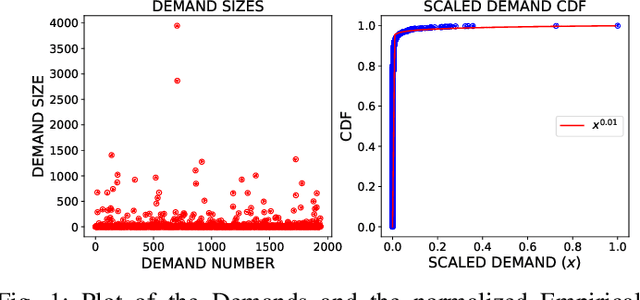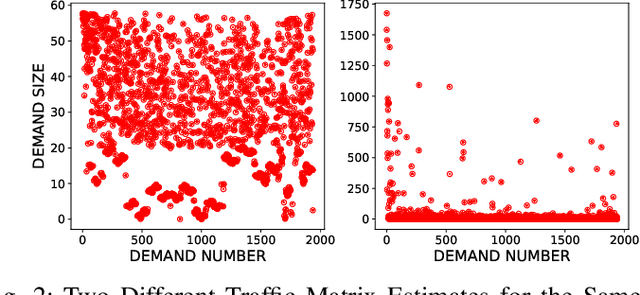Shivendra Panwar
Structured Reinforcement Learning for Delay-Optimal Data Transmission in Dense mmWave Networks
Apr 25, 2024Abstract:We study the data packet transmission problem (mmDPT) in dense cell-free millimeter wave (mmWave) networks, i.e., users sending data packet requests to access points (APs) via uplinks and APs transmitting requested data packets to users via downlinks. Our objective is to minimize the average delay in the system due to APs' limited service capacity and unreliable wireless channels between APs and users. This problem can be formulated as a restless multi-armed bandits problem with fairness constraint (RMAB-F). Since finding the optimal policy for RMAB-F is intractable, existing learning algorithms are computationally expensive and not suitable for practical dynamic dense mmWave networks. In this paper, we propose a structured reinforcement learning (RL) solution for mmDPT by exploiting the inherent structure encoded in RMAB-F. To achieve this, we first design a low-complexity and provably asymptotically optimal index policy for RMAB-F. Then, we leverage this structure information to develop a structured RL algorithm called mmDPT-TS, which provably achieves an \tilde{O}(\sqrt{T}) Bayesian regret. More importantly, mmDPT-TS is computation-efficient and thus amenable to practical implementation, as it fully exploits the structure of index policy for making decisions. Extensive emulation based on data collected in realistic mmWave networks demonstrate significant gains of mmDPT-TS over existing approaches.
Learning Based Methods for Traffic Matrix Estimation from Link Measurements
Aug 03, 2020



Abstract:Network traffic demand matrix is a critical input for capacity planning, anomaly detection and many other network management related tasks. The demand matrix is often computed from link load measurements. The traffic matrix (TM) estimation problem is the determination of the traffic demand matrix from link load measurements. The relationship between the link loads and the traffic matrix that generated the link load can be modeled as an under-determined linear system and has multiple feasible solutions. Therefore, prior knowledge of the traffic demand pattern has to be used in order to find a potentially feasible demand matrix. In this paper, we consider the TM estimation problem where we have information about the distribution of the demand sizes. This information can be obtained from the analysis of a few traffic matrices measured in the past or from operator experience. We develop an iterative projection based algorithm for the solution of this problem. If large number of past traffic matrices are accessible, we propose a Generative Adversarial Network (GAN) based approach for solving the problem. We compare the strengths of the two approaches and evaluate their performance for several networks using varying amounts of past data.
 Add to Chrome
Add to Chrome Add to Firefox
Add to Firefox Add to Edge
Add to Edge